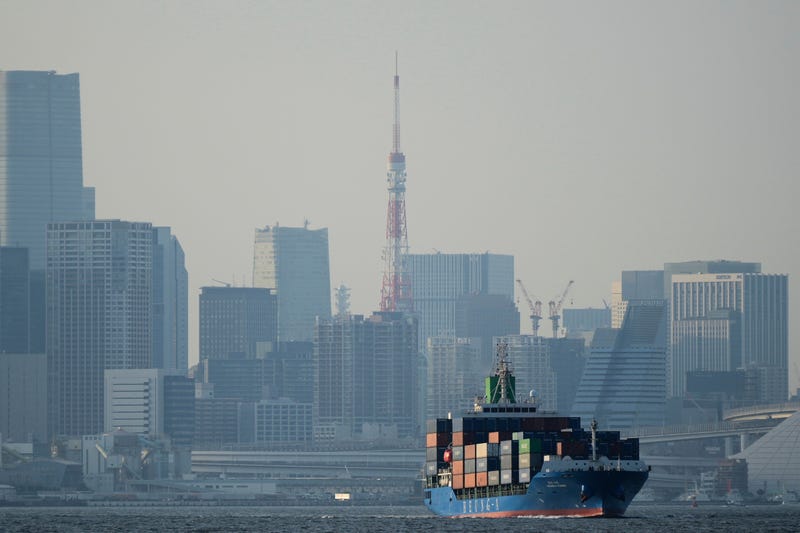
With trade threats from President Donald Trump, the U.S. derailed the world’s first global carbon fee on shipping as an international maritime meeting adjourned Friday without adopting regulations.
Earlier this year, amid much fanfare, the world’s largest maritime nations agreed on the regulations, which would impose a fee on carbon pollution to clean up shipping. The next step of the process — adopting the regulations — during the International Maritime Organization meeting in London this week was widely expected to be a formality.
Instead, after much pressure from Trump, along with Saudi Arabia and a handful of other countries, delegates decided to postpone the decision by a year and adjourn. In the interim, nations will continue to negotiate and work toward consensus.
The development underscored how the influence of Trump, who recently called climate change a “con job,” extends globally to policies aimed at combating climate change.
“Faced with pressure, too many governments chose political compromise over climate justice, and in doing so, abandoned the countries bearing the brunt of the climate crisis,” said Emma Fenton, senior director for climate diplomacy at a U.K.-based climate change nonprofit, Opportunity Green.
The Trump administration was quick to celebrate
U.S. Secretary of State Marco Rubio hailed the development as “another huge win” for Trump.
“Thanks to his leadership, the United States prevented a massive U.N. tax hike on American consumers that would have funded progressive climate pet projects," Rubio wrote on X. “Our country will continue to lead the way and put America FIRST.”
Trump had urged countries to vote “No,” posting on his social media platform Truth Social on Thursday that “the United States will not stand for this global green new scam tax on shipping.” The U.S. had threatened to retaliate with tariffs, visa restrictions and port levies if nations supported it.
After vowing to fight any global tax on shipping emissions, Saudi Arabia called for a vote to adjourn the meeting for a year. More than half the countries agreed.
Arsenio Dominguez, secretary-general of the IMO, the United Nations agency that regulates international shipping, said in a post-meeting news conference that “geopolitics in the world right now makes it more difficult for us to make progress in certain topics.”
Nations falter in their efforts to save the planet
The decision, or lack thereof, in London is similar to what happened this summer with a major treaty to end growing plastic pollution around the world. The negotiations fell apart, with the United States and Saudi Arabia opposing any limit on plastic production.
The world’s biggest climate summit, COP30, is in November in Belem, Brazil. Ralph Regenvanu, minister for climate change for the Pacific Island nation of Vanuatu, said the road to Belem and beyond is now more difficult.
“The IMO’s failure to adopt the framework this week marks a failure of this United Nations agency to act decisively on climate change,” Regenvanu said. “But we know that we have international law on our side and will continue to fight for our people and the planet.”
Shipping emissions grow
Large ships last about 25 years, so the industry would need to make changes and investments now to slash its emissions. Most ships today run on heavy fuel oil that releases carbon dioxide and other pollutants as it’s burned. The International Chamber of Shipping, which represents over 80% of the world’s merchant fleet, advocated for the adoption of the regulations.
Thomas Kazakos, the chamber's secretary-general, said they are disappointed because the industry needs clarity to be able to make the investments needed to decarbonize the maritime sector.
Shipping emissions have grown over the past decade to about 3% of the global total as trade has grown and vessels use immense amounts of fossil fuels to transport cargo over long distances.
The regulations, or “Net-Zero Framework,” would set a marine fuel standard that decreases, over time, the amount of greenhouse gas emissions allowed from using shipping fuels. The regulations also would establish a pricing system that would impose fees for every ton of greenhouse gases emitted by ships above allowable limits, in what is effectively the first global tax on greenhouse gas emissions.
“The delay leaves the shipping sector drifting in uncertainty. But this week has also shown that there is a clear desire to clean up the shipping industry, even in the face of U.S. bullying,” said Alison Shaw, IMO Manager at Transport & Environment, a Brussels-based environmental nongovernmental organization.
The IMO set a target for the sector to reach net-zero greenhouse gas emissions by about 2050, and has committed to ensuring that fuels with zero or near-zero emissions are used more widely.
“What matters now is that countries rise up and come back to the IMO with a louder and more confident yes vote that cannot be silenced,” said Anaïs Rios, shipping policy officer for Seas At Risk. "The planet and the future of shipping does not have time to waste.”
___
The Associated Press’ climate and environmental coverage receives financial support from multiple private foundations. AP is solely responsible for all content. Find AP’s standards for working with philanthropies, a list of supporters and funded coverage areas at AP.org.